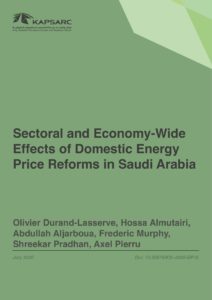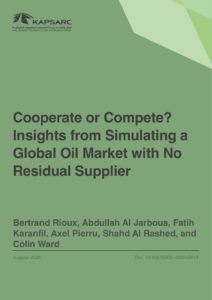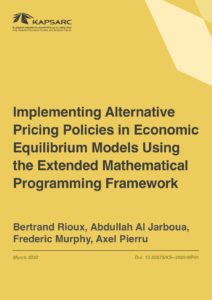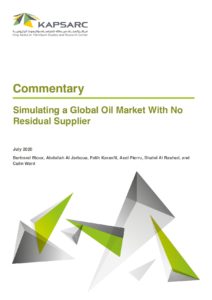Abdullah is a senior fellow in the Energy Macro & Microeconomics program with an interest in developing energy systems and energy-economic models. Before rejoining KAPSARC, he worked as an economic modeling expert in the telecommunications sector.
Abdullah holds a master’s degree in Computer Science from King Abdullah University of Science and Technology and a B.S. degree in Computer Engineering from Tennessee Technological University




